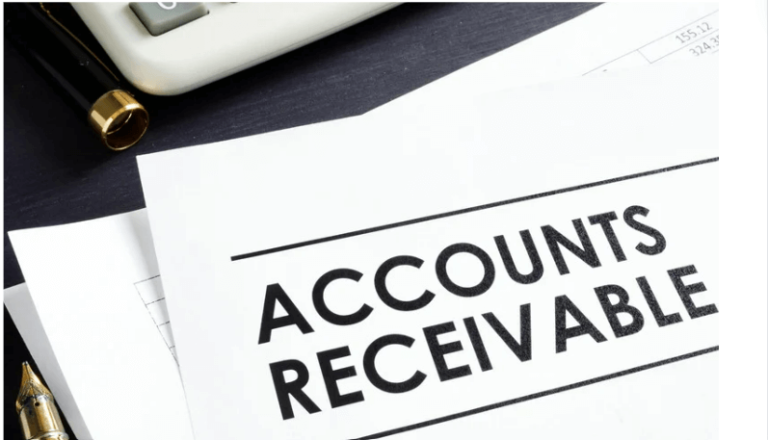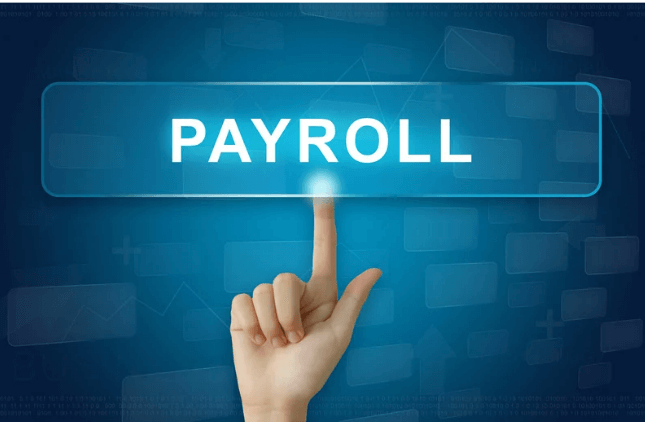Key Points:
1. Use workflow management software to streamline tax return processes and track tasks efficiently.
2. Offshoring firms can extend work hours, provide backup, and improve productivity during tax season.
3. Prioritize tasks, delegate effectively, and set realistic deadlines to manage workload without burnout.
4. Regular mini-breaks, effective team communication, and work-life balance help maintain focus and prevent stress during busy periods.
The period between January and April is one of the busiest times for Certified Public Accountants (CPAs) and accounting firms, as it marks the annual tax filing season. With increased workloads and strict deadlines, effective work management techniques for CPAs become crucial during this period. This article discusses some effective techniques that CPAs and accounting firms can adopt to manage their work efficiently during the tax season.
Tips for CPAs to Improve Peak Tax Season Productivity|Effective work management techniques for CPAs

Let’s take a look at a few ways and means accounting firms can increase their productivity:
Tips for CPAs to Improve Peak Tax Season Productivity
Workflow Management
Tax preparers need to utilize workflow management software to effectively manage tax returns. There are various excellent workflow management software options available, such as Trello, Jetpack, and TaxDome. Advance Finserv is an offshore firm that can assist tax preparation firms in setting up efficient workflow management software.
Hiring Offshoring Firms
Engaging the services of a firm from a different time zone can amplify productivity as work can be carried out around the clock. This enables the firm to effectively double their working hours. Additionally, hiring an offshoring firm provides the benefit of having a backup team in case of any issues or overflow of work.
By implementing these techniques, CPAs and accounting firms can streamline their processes and maximize productivity during the demanding tax season.
Prioritize and Delegate Work
One of the most important techniques is to prioritize and delegate work properly. CPAs should evaluate all tasks and prioritize more important and time-sensitive ones. Less critical tasks can be postponed.
CPAs should also delegate routine tasks to other team members based on their experience levels. For example, experienced accountants can handle complex business tax returns, while beginners can focus on more straightforward individual returns. This ensures the top priorities don’t get delayed and everyone contributes to their full potential.
Set Realistic Deadlines
When overloaded with work, the tendency is to set aggressive deadlines that are difficult to meet. Instead, CPAs should set realistic deadlines based on available resources and the complexity of each client’s case. It is always good to build in some buffer time for contingency.
Meeting unrealistic deadlines often leads to rushing through work and making mistakes, which will need more time to fix later. Setting realistic deadlines prevents stress and burnout while ensuring work is completed on time.
Mini-Breaks keep you Focused
Our concentration and focus start fading after long hours of intense work. Taking periodic mini-breaks is essential to recharge ourselves. CPAs can take 5-10 minute breaks every 90 minutes to stretch, drink water and refresh themselves.
During breaks, they should relax without any work-related thoughts. Breaks help them come back re-energized to focus better on remaining tasks and do justice to each client’s work. Mini-breaks have proven benefits in maintaining productivity levels throughout tax season.
Communicate Effectively
In busy periods, coordination and communication between team members becomes crucial. Daily stand-up meetings help everyone get on the same page regarding priorities, issues, and deadlines.
CPAs should empower their teams to share progress updates and roadblocks without hesitation. Leads must be accessible and responsive to teams’ concerns to build trust. Effective communication streamlines workflows prevents rework and ensures smooth sailing even during peak load times like tax season.
Work-Life Balance must be Prioritized
With deadlines looming large, tax professionals often end up working long hours day after day, forgetting to take proper breaks. However, overworking and ignoring self-care can rapidly lead to stress, burnout, and poorer performance over time.
CPAs should mandate strict work hours for their teams and themselves. They must unplug evenings and weekends to spend quality time with family and on hobbies. Maintaining work-life balance, even during crunch periods, helps professionals stay energized, focused, and motivated in the long run with better outcomes.

Use Technology Tools
Technology solutions help maximize productivity through automation and efficiencies. CPAs can leverage cloud-based tax preparation software and online portals to file returns digitally and reduce paperwork. Using project management and collaboration tools ensures transparent task tracking and resource allocation.
Data encryption and cybersecurity tools protect sensitive client information. Technology supplements human efforts to scale operations and meet deadlines while maintaining quality standards. Firms going digital are better equipped to handle increasing client loads during tax seasons.
Provide Feedback and Recognition
Tax seasons are stressful periods with little room for errors or delays. In such times, recognition and feedback assume more importance for motivating teams. CPAs should periodically provide constructive feedback on performance to individuals and teams. Highlighting specific contributions and achievements boosts morale.
Small rewards and recognition can be in the form of gifts, additional days off, or public appreciation. A culture of appreciation and feedback keeps employees engaged and doing their best work even during challenging times like tax season.
Analyze Your Bottlenecks
CPAs should carefully analyze the workflows and processes to identify bottlenecks where work gets delayed or piled up. Common bottlenecks could be data entry tasks or paperwork validation. Streamlining such routine steps through automation or reassigning tasks can free up time for accountants. Addressing bottlenecks prevents unnecessary backups and ensures seamless workflow during tax season.
Increase Support Staff
As client loads increase, accounting firms often fall short of the required manpower. CPAs should gauge work volumes accurately and hire additional support staff like administrative assistants and data entry clerks temporarily to handle supplemental work. Outsourcing some routine processes also augments existing resources. With adequate qualified support staff, accountants can focus on core tax and compliance work more productively.
Standardize Processes and Templates
Lack of consistency in work methods leads to reworks and redundancy. Firms should create standardized checklists of steps, templates, and guidelines for all recurring tasks. For example, standardizing requirements for seeking client information and documents saves time compared to starting from scratch on every case. Consistent processes facilitate training new joiners and scale operations efficiently during peak seasons.
Maintain Checklists and Calendars
With so many moving deadlines and client requirements, it is easy to miss tracking something. Using centralized checklists and online calendars helps accountants and their teams mark and track all important due dates related to filing returns, payment reminders, audit requirements, etc.
A readily available consolidated view of schedules and checkboxes prevents slip-ups. It fosters an organized, well-coordinated work culture, especially in stressful periods like tax season.
Schedule Buffer Time
Even with best efforts, unexpected issues or revisions may arise close to deadlines. CPAs must factor in some buffer or contingency days in planning schedules to account for such contingencies. Rather than rushing through the remaining work, which risks quality, buffer days can be utilized carefully.
For example, if a return filing is due on the 15th, the handover from the accountant to the reviewer may be scheduled by the 10th to avoid the last-minute pile-up. Similarly, client document collection could be aimed for completion by the 20th if the due date is the 31st. A judicious buffer mitigates the impact of unforeseen glitches.
Accommodate Emergencies and Adjustments
No matter how well planned, personal difficulties of employees or last-minute client compliance issues may disrupt pre-determined schedules. CPAs must build agility to accommodate reasonable adjustments without deadline slippages. For example, projects can be readjusted based on individual workloads after a medical or family leave.
Similarly, if a client submits revised estimates after initiating work, the remaining tasks must be fast-tracked to compensate without penalties. A protocol of reviews and adjustments every Friday for the upcoming week can accommodate 10-15% capacity changes if required. Such flexibility sustains morale and performance over tax seasons year after year.
Wrapping Up
With tax season pressures running high each year, adopting effective work management techniques becomes inevitable for success. Prioritizing efforts, setting realistic targets, taking breaks, leveraging technology, and building trusted teams through communication are some key strategies highlighted.
Maintaining work-life balance and recognizing contributions are equally crucial. CPAs who plan and manage their workloads well during tax seasons gain a competitive edge over others by delivering consistent, high-quality service to clients on time each year.
Frequently Asked Questions (FAQs)
Q. 1 How do I determine the correct number of staff needed during tax season?
Answer: To determine the ideal staff count, analyze the previous year’s workload trends, expected client growth, and complexity levels—factor in additional resources needed for onboarding of new clients, unforeseen contingencies, etc. Hiring temporary staff for clearly defined roles helps scale up while controlling costs.
Q 2: What is the most efficient way to collect client documents digitally?
Answer: Set up a client portal on your firm’s website where clients can directly upload documents securely. Email standardized checklists in advance for clients to track submissions. Leverage e-sign services for engagement letters to speed up the new client onboarding process digitally.
Q 3: How do I keep staff morale high under the pressure of tax season?
Answer:
- Appreciate efforts through occasional rewards and long service recognition.
- Promote open communication and address concerns timely.
- Encourage breaks and reasonable work hours.
- Organize team outings after significant deadlines.
- Set expectations realistically and redistribute workloads to avoid bottlenecks and burnouts.
Staying connected goes a long way in retaining staff during stressful seasons.
Also read:




